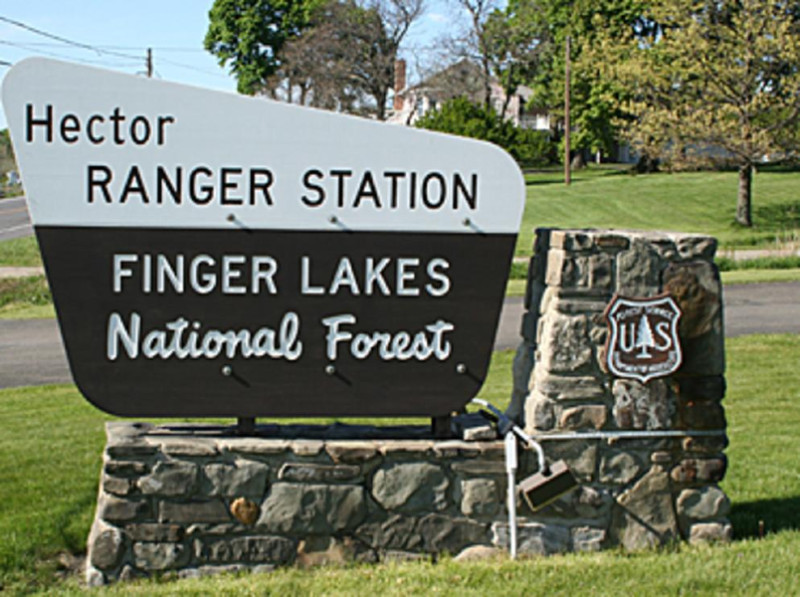Staff Report / June 3, 2025
Environmental groups are sounding the alarm over potential logging activities in the Finger Lakes National Forest (FLNF), New York’s sole national forest, following a recent executive order by President Donald Trump aimed at boosting domestic timber production.
On March 1, 2025, President Trump signed the “Immediate Expansion of American Timber Production” executive order, directing federal agencies to expedite logging projects across national forests to enhance economic resilience and national security. In alignment with this directive, the U.S. Department of Agriculture (USDA) has committed $200 million to expand timber production under its National Active Forest Management Strategy, targeting a 25% increase in harvest levels by 2028.
Seneca Lake Guardian, a local environmental nonprofit, has initiated a petition urging Senators Charles Schumer and Kirsten Gillibrand, along with Governor Kathy Hochul, to protect the FLNF from potential increased logging. The organization emphasizes concerns over habitat degradation, water quality issues due to increased runoff into Seneca and Cayuga Lakes, and heightened wildfire risks.
“We treasure our National Forest for all the benefits it provides to New York State. But this order ignores these values and opens the door for our highly valued forest to be plundered, for nothing more than corporate gain,” said Yvonne Taylor, Vice President of Seneca Lake Guardian.
While local Forest Rangers have indicated that no immediate logging plans are underway in the FLNF, the executive order’s broad scope has raised concerns about future activities. The FLNF, encompassing approximately 16,000 acres between Seneca and Cayuga Lakes in Schuyler and Seneca Counties, is home to diverse ecosystems, including woodlands, pastures, and wetlands.
The petition by Seneca Lake Guardian calls for:
- A public meeting involving FLNF Rangers, experienced local loggers, and concerned constituents to discuss potential logging impacts.
- An amendment to the federal executive order to exempt the FLNF from increased logging mandates.
- Immediate actions to support the reinstatement of FLNF employees.
Environmental advocates argue that increased logging could lead to erosion and runoff into the Finger Lakes, potentially causing harmful algal blooms and loss of biodiversity. They also express concerns about the expedited processes outlined in the executive order, which may limit public input and environmental reviews.
The USDA’s investment and the executive order have sparked a national debate on balancing economic objectives with environmental preservation. As discussions continue, stakeholders emphasize the importance of transparent decision-making and community involvement in managing the future of the FLNF.









